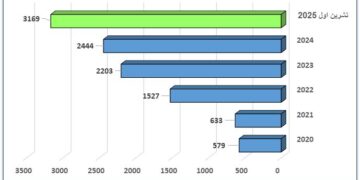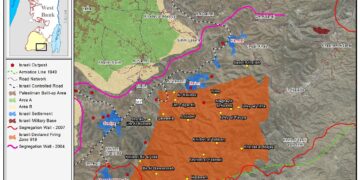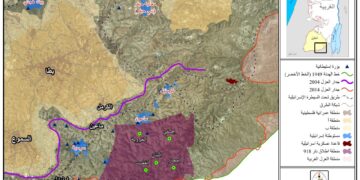Mr. Nasser Shoukeh joined the staff of the institute as a driver and in charge of maintenance since 10 June 2000. After a 3 months probationary period, he was hired as a full time employee at the institute where he works five days a week from 8 am until 4 pm. Frequently, he is asked to work after hours and on week ends. His job involved driving frequently all over the West Bank either with researchers at the institute where it was quite customary to be stopped at checkpoints and their documents investigated by the Israeli soldiers or border police before being allowed to proceed with their activities.
Thus, on July 19th 2001, it was quite normal for Nasser to drive to Ramallah with ARIJ staff for a meeting with the Palestinian Ministry of Higher education. On the way back to Bethlehem, the Institute's car was stopped by the border police on a checkpoint near Abu Dies village, and, to everyone's surprise, Nasser was arrested. In fact, he knew that there is a checkpoint at that site and he could have easily avoided it through an alternative route, but no one had expected that they would arrest him since he always carried all the necessary documents with him.
Nasser has four brothers, two of whom live in Canada while his elder brother passed away last month. Thus, Nasser and another older brother became responsible for the family. While Nasser has only one daughter, he is in charge of 10 dependants. This forced him to work at a grocery supplies store after work hours in order to survive since his modest salary ($ 300 a month) can hardly meet his needs. He recently moved to a new apartment after joining ARIJ and was looking forward for a better future.
After his arrest, he was transferred to Al Majnouna detention center near Hebron. No one talked to him or investigated him. ARIJ assigned a lawyer from Bethlehem to follow his case. The lawyer visited Nasser at al Majnouna detention center and he told ARIJ and his family that he would be released since there are no charges made against him. Yet he was not released but was transferred to Mageddo detention center near Jenin and issued an administrative detention order. This is an Israeli practice that was inherited from the British mandate period by which a person can be held without any charge for a period of six months that can be extended again and again. Some Palestinians spent more than seven years in Israeli jails through this procedure. A detainee is entitled for appeal against administrative detention, but in most cases, Israeli security personnel will resort to the ''secret files'' i.e. cannot be revealed as an excuse to justify the detention order.
On 30.7.2001, Nasser found himself in front of a military court in Megiddo prison for discussing an appeal. Neither his lawyer nor him knew about this. However, he met there Mrs. Tamar Peleg, who is an Israeli lawyer from the Association of Civil Rights in Israel that assumes the responsibility of defending Palestinian detainees issued with administrative detention. Mrs. Tamar Peleg is a good friend of ARIJ's Director General and had defended him when he was given an administrative detention back in 1988. Nasser introduced himself to Mrs. Peleg and she looked at his file and found a number of mistakes and loopholes, which led her to call for rescheduling his appeal till 6.8.2001.
On 6.8.2001, Nasser appeared in front of the appeal court. Meanwhile, the Director General of ARIJ sent an affidavit and Mrs. Peleg came to know more about Nasser. The appeal court, as described by Nasser and his lawyers, was not serious. Those who issued the detention order did not know where he works and whether he was married or not, how many brothers he had, that he frequently been driving throughout the West Bank and was never stopped. Mrs. Peleg provided all this information to the judge aiming to show that those who issued the administrative detention order did not even bother to know who is the accused and what is he accused of. After listening to the lawyers, the judge decided to postpone the verdict for few days to allow him and the prosecutors to investigate the case further.
Mrs. Peleg called ARIJ and conveyed what happened. While she was not optimistic, Nasser and his family as well the people at ARIJ had hopes that there may be still some justice left in the Israeli military judicial system. To their surprise, the answer came on the morning of August 13, 2001 endorsing the administrative detention order for Nasser. This means that he will spend six months in jail without any charges. This has created bitter feelings among ARIJ staff, who strongly believe that Nasser is no threat to anybody and his detention will serve no purpose.
This incident shows how difficult it is for ARIJ and other Palestinian institutions to continue their work due to Israeli harassments. The work of research institutes and Non-Governmental Organizations is essential for the empowerment of the Palestinian society and the strengthening of civil society values amongst the Palestinians.
We call upon our friends and all peace loving people to interfere.
Prepared by:
The Applied Research Institute – Jerusalem














